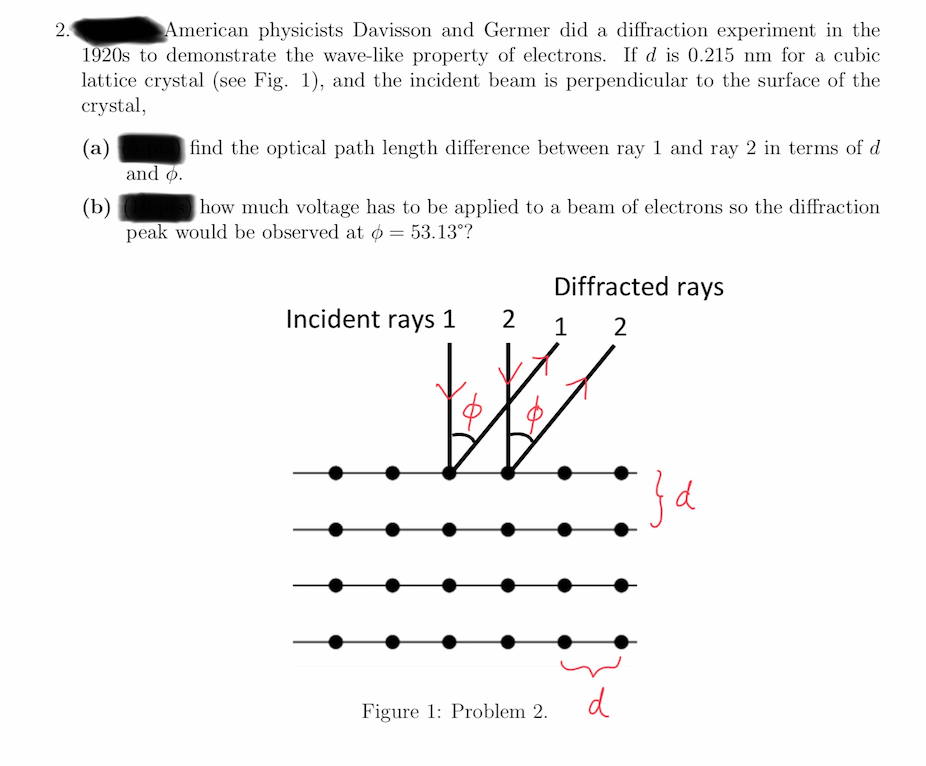(a) and ø. find the optical path length difference between ray 1 and ray 2 in terms of d (b) peak would be observed at ø = 53.13°? how much voltage has to be applied to a beam of electrons so the diffraction
(a) and ø. find the optical path length difference between ray 1 and ray 2 in terms of d (b) peak would be observed at ø = 53.13°? how much voltage has to be applied to a beam of electrons so the diffraction
Related questions
Question

Transcribed Image Text:2.
American physicists Davisson and Germer did a diffraction experiment in the
1920s to demonstrate the wave-like property of electrons. If d is 0.215 nm for a cubic
lattice crystal (see Fig. 1), and the incident beam is perpendicular to the surface of the
crystal,
(a)
and o.
find the optical path length difference between ray 1 and ray 2 in terms of d
(b)
peak would be observed at 0 = 53.13°?
|how much voltage has to be applied to a beam of electrons so the diffraction
Diffracted rays
Incident rays 1
2
1
d
Figure 1: Problem 2.
Expert Solution
This question has been solved!
Explore an expertly crafted, step-by-step solution for a thorough understanding of key concepts.
Step by step
Solved in 2 steps with 1 images
